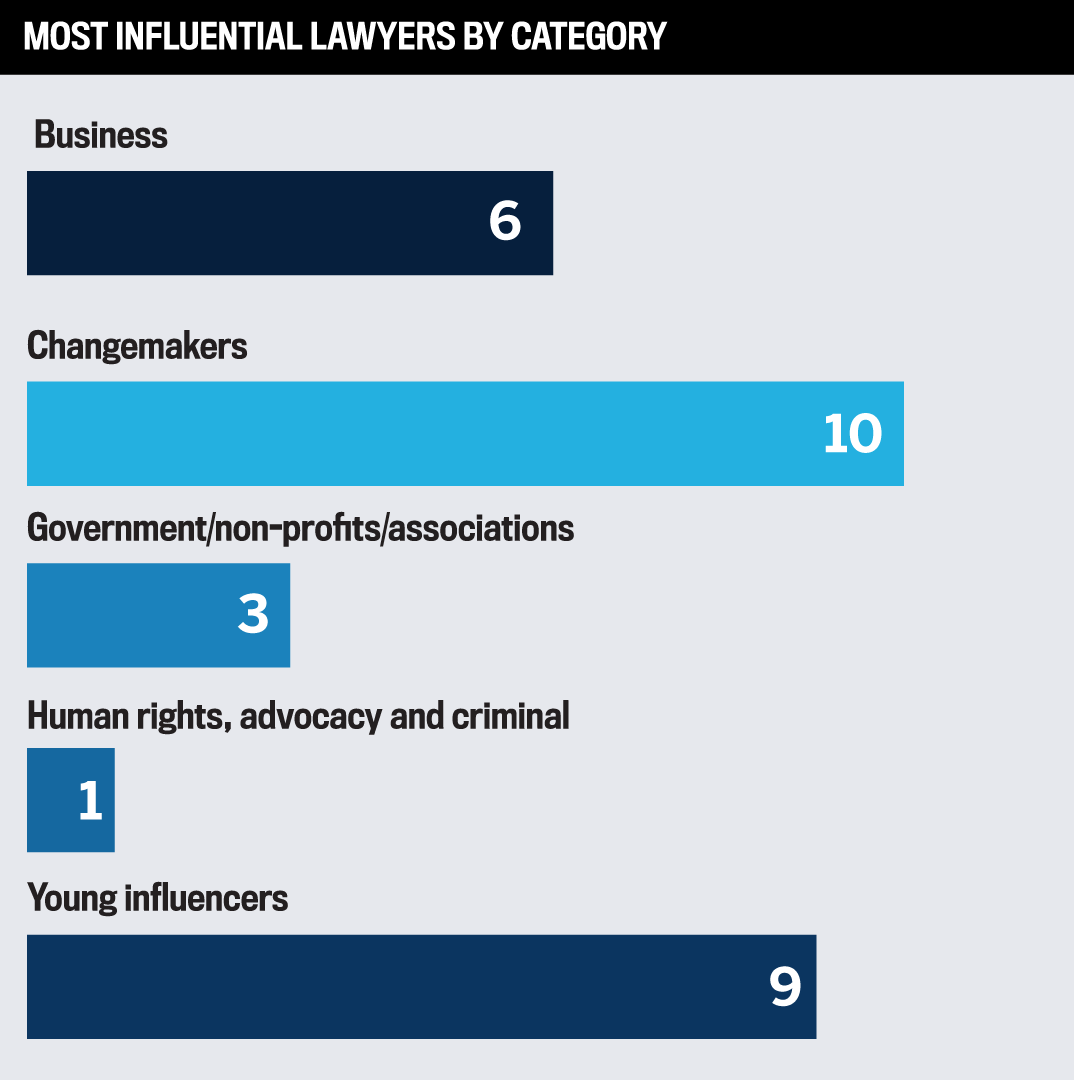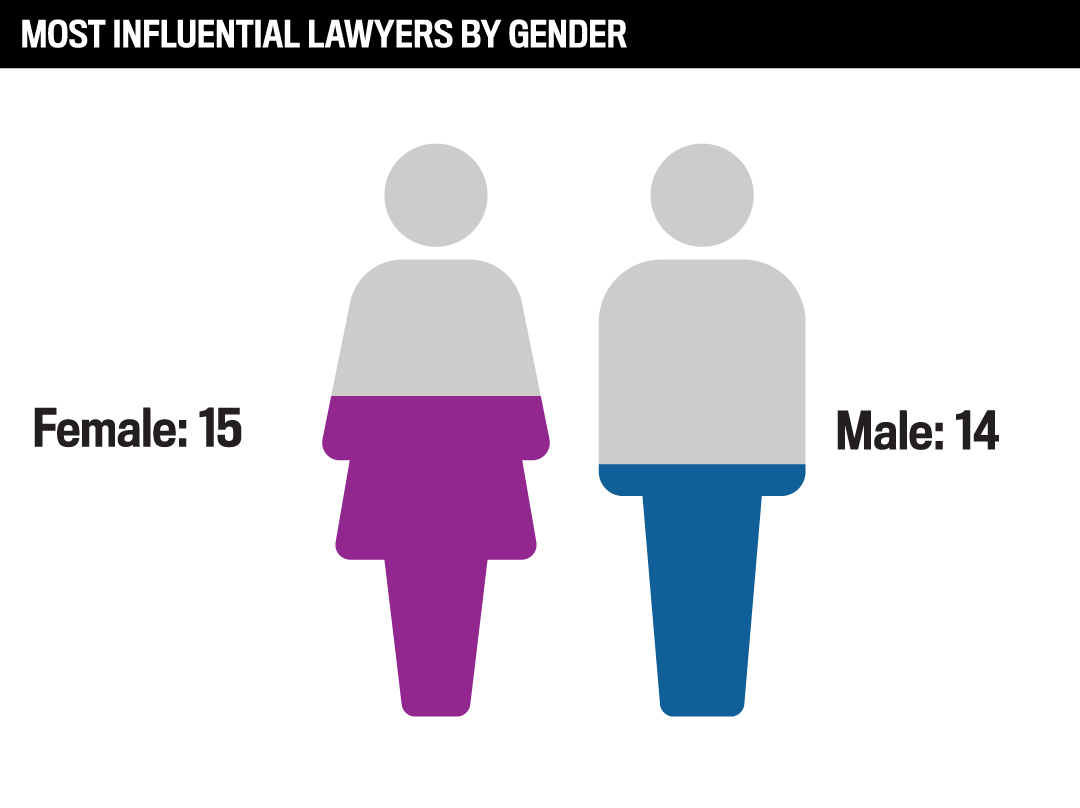

Jump to winners | Jump to methodology
After a difficult two years that upended the globe, the world is finally settling into the ‘new normal’. In particular, the Australian legal profession has adopted crucial changes, infusing tech and flexibility into the way it works. Progressing from a traditionally archaic style that favoured manual processes, the profession today has taken easily to the use of video conferencing, email and other automation methods.
The industry has also come to accept the value of flexible work arrangements. While there was an adjustment period wherein many lawyers needed to learn to draw boundaries between work and personal life while at home, the profession has largely come to embrace the freedom and benefits of such arrangements.
With diversity and inclusion also becoming increasingly vital in today’s society, law firms and organisations have doubled down on their efforts to foster positive and progressive work cultures that respect and celebrate the differences among staff.
“Firms learnt that their staff could work from just about anywhere and be just as productive. Partners were compelled by circumstance to use new technology”
Shaun Temby, partner, Maddocks

The integration of technology into legal operations has been one of the biggest changes to the industry since the pandemic reared its ugly head.
“The legal profession was forced to embrace technology that was so common in other industries. Law firms who only used fax and printed letters are now using email, video conferencing technology and online portals to transfer information,” says Most Influential Lawyer Leigh Davidson, principal solicitor at Advantage Legal.
Technology is now expected to be a standard part of law practice for both lawyers and clients, he explains.
“The speed of communication and data transfer has certainly improved as a result, and whether lawyers like it or not, the use of this kind of technology is here to stay.”
Davidson’s firm recognised the change in the wind as early as 2018, when Advantage Legal was launched with a “technology-first mentality”.
“We invested immediately in technology which would make legal practice more mobile and more user-friendly for our team and clients irrespective of distance from the office. It improved the services we could provide to our clients and allowed us to reduce waiting times for work to be completed,” Davidson says.
“Fast-forward to 2020 when COVID hit and lockdowns were imposed, our team were able to pick up our laptops and work from home as normal. It was fortuitous, but this investment at an early stage meant we were well equipped to deal with COVID from day one.”
For Maddocks partner and Most Influential Lawyer Shaun Temby, the pandemic proved that “old dogs actually can learn new tricks”.
“First, firms learnt that their staff could work from just about anywhere and be just as productive. Second, partners were compelled by circumstance to use new technology,” he points out.
“There is no doubt that the rapid adoption of technology, particularly video, has assisted how we look after our clients. Whether it be working with team members and clients from all over the country, appearing remotely in court in different states and territories, or conducting mediation over Zoom, everything is easier and more efficient.”
“Law firm employees as a whole want a better work-life balance, and employers need to provide it in order to attract top talent”
Leigh Davidson, Advantage Legal
With tech making remote work not only possible but preferred in many cases, flexibility at work has become crucial to lawyers.
“After the past few years, law firm employees as a whole want a better work-life balance, and employers need to provide it in order to attract top talent. The profession needs to accept that COVID has changed what an ordinary workday looks like and adopt flexibility into the workplace,” Davidson says.
Most Influential Lawyer Danny King, principal at Danny King Legal, points out that COVID-19’s most significant impact on the profession has been changing the notion that law can’t be practised remotely.
“I think that if antiquated mandates to work full-time in the office are enforced, we’ll see many young lawyers vote with their feet,” she says.
Lawyers are also now adamant that flexibility is not just observed with working arrangements but also in terms of diversity and inclusion and employee wellbeing.
“Encouragingly, increased mental and physical flexibility has opened the door for many of our colleagues who have different needs, as well as for women who have previously been unable to commit to more rigid workplaces,” King explains.
“For those with different abilities, we must take advantage of reduced barriers to ramp up inclusivity and diversity in the workplace. There’s an opportunity to further embed this in our hiring and management processes and make deliberate efforts to increase the tools needed so everyone can work comfortably and effectively.”
Temby adds that the legal profession’s commitment to diversity and inclusion has become “far more significant, genuine and embedded in everything we do at Maddocks and across the sector”.
“We can see that younger people who identify as part of the LGBTIQ+ community and are joining the profession are more comfortable and secure enough to be ‘out’ in the workplace. Their openness and confidence are a testament to the strides we have made in that area,” he says.
Meanwhile, Advantage Legal has sought to do more than just provide legal representation for its target market.
“We recently partnered with Bicycle NSW because we saw a lot of alignment between what they are trying to achieve from a bicycle safety advocacy perspective and our own values. We are now working with Bicycle NSW to assist its members and the cycling community as a whole to improve conditions and societal attitudes towards cyclists,” Davidson says. “We’re very proud of this partnership and supporting Bicycle NSW on its bicycle safety initiatives.”
“Helping [young lawyers] achieve what they actually want to, rather than imposing our own rigid ideas on that front, helps all of our team to feel actively supported”
Danny King, Danny King Legal

While the legal profession has come a long way since COVID-19, Davidson believes there is still some adjustment going on.
“I’d like to say that gone are the days where law firms can demand that people come into the office each and every day without ever being considered as a suitable candidate for flexible workplace conditions such as work-from-home. It simply isn’t the case, however,” she says.
“There appears to still be a tendency of law firms to ‘return to the office’ and the way ‘things have always been done’.”
Financial conditions also remain challenging even as the world eases out of the pandemic’s shadow – an effect strongly felt by Temby’s clients.
“We can likely expect to see increased disputation as times get tougher and commercial parties look to salvage what they can out of deals that go bad or due to challenging financial conditions,” he says.
“Where possible, clients will – or should – be looking to mediate to resolve disputes as quickly and commercially as possible. However, in larger disputes where the parties’ positions are divergent, we can expect to see protracted litigation as each side grapples for advantage.”
The key to the future of the profession is in having creative approaches to developing young lawyers, King points out.
“Helping [young lawyers] achieve what they actually want to, rather than imposing our own rigid ideas on that front, helps all of our team to not only feel seen but actively supported,” she says.
“I’d encourage the industry to turbocharge their listening skills and give young lawyers opportunities that really matter to them.”
Australasian Lawyer opened the window to nominations for its 2022 Most Influential Lawyers list on 29 March. The research team sought prospective candidates in the following categories:
The team also welcomed nominees who did not hold a formal law qualification. Nominees were asked to detail their achievements, provide examples of their accomplishments and share their contributions to the legal profession on the nomination form.
The Australasian Lawyer team then evaluated the nominations, reviewing them based on the overall impact of their contributions. The 29 lawyers who made the final list were those who delivered specific outcomes in support of their peers and the industry.
34% of the Most Influential Lawyers are in the Changemakers category
52% of the Most Influential Lawyers are women
18 of the Most Influential Lawyers are based in NSW